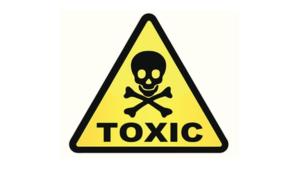
I commonly used to joke with the audience of speaking engagements by asking the question- ” Are there more functional families are dysfunctional families”? I do not know the answer, but invariably it raised a nervous bout of laughter.
There is a huge range of the term “dysfunctional” that stretches from mild to totally nuts.
One thing I have noted in my practice is that many people do not actually realize they were raised in a dysfunctional family until many years later when life experiences shown to them by others, point out the dramatic different reality in which their earlier life underwent.
I think the key to surviving a dysfunctional family is to recognize as early as possible that your family is dysfunctional/toxic and to take early steps such as counseling to create what in effect an ” intervention “to get yourself out of the family.
It must be realize that the family is not going to change, and that you are the only one who can do anything about it in order to save yourself.
I did an earlier blog entitled “How to Recognize a Dysfunctional Family”, which should probably be read in conjunction with this blog in terms of coming to grips with understanding the concept itself.
In addition to the eight criteria that I set out in the other blog about common traits of dysfunctional families, I offer the following observations:
Observations of People From Dysfunctional Families and What to Do to Survive
- Many people raised in a dysfunctional family live in fear of being abandoned as that was their experience as a child. By abandonment I mean emotional abandonment, which often leads to poor choices in later life when it comes to choosing a partner. The harsh statements, belittling and strong criticism by family members are prevalent traits that have lasting effect. Finding a strong, supportive partner in recognition of your fear of abandonment is a sound survival technique;
- People pleasing and being overly nice in situations is a survival trait that can accompany the feeling of emotional abandonment. By people pleasing you are not being true to yourself and recognizing this trait is a step forward in learning how to survive the crap imposed upon you by years of being in a dysfunctional family;
- You have a fear of loneliness and isolation that is probably once again associated with the fear of emotional abandonment. Recognizing this, and seeking counseling or group therapy is a good tactic as is simply recognizing that there are many more like yourself out there. This realization alone builds inner confidence and strength through numbers;
- The feeling of having been a victim is very prevalent as for much of your life you have been one. The key to overcoming any feelings of victimization is to have the strength to ask for help and join groups and websites that provide strength to overcoming the common feelings that victims experience;
- Incessant worry about the future again comes with the territory. A recognition that you cannot control the future is itself a big step in the realization that you can only control your own life and emotional status as much as you can without the worry about what others will think, especially non sportive family members;
- Extreme self judgment is common as you have experienced bitter statements from your family growing up, such as ” you are the most selfish child I know” or worse. These statements are simply not true and must in effect be unlearned. This is easier said than done, but is entirely possible.
I conclude by stating that in my view the best survival tactics for those who have grown up in a dysfunctional family is to extricate yourself from the family as soon as and as much as possible in order to save yourself and realize that you cannot change the family, but can change your own life and destiny.
Invariably counseling and group support will be necessary in order to achieve this, and given the innumerable number of people that come from dysfunctional families, I think it is entirely possible to survive your having grown up in a dysfunctional family.




